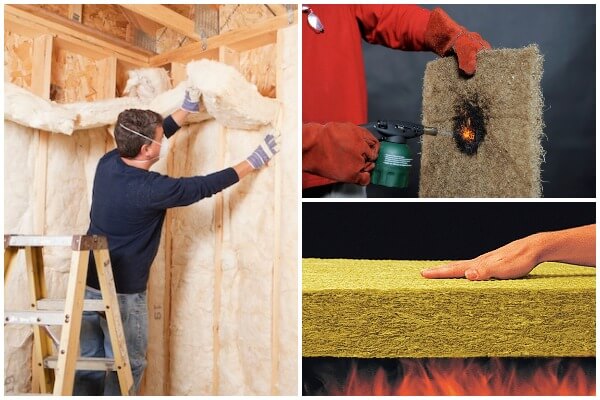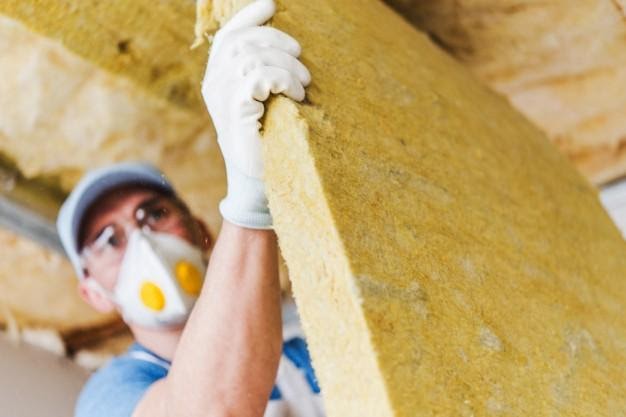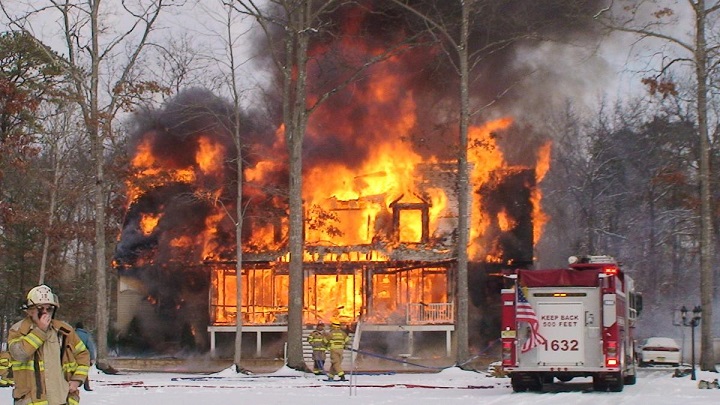You might have wondered just how fire-resistant so-called ‘fireproof’ insulation is. Well, here’s your answer!
What does fire-rated insulation mean?

Fire-rated insulation is a type of insulation that can restrict the spread of fire, due to its own non-combustible properties. Usually, fire-rated insulation is made using recycled glass or minerals.
These materials have natural fire resistance. This makes them much safer for the home, and most new homes will have fire-rated insulation installed.
The importance of fire-rated insulation can’t be understated. It should always be a major consideration when building a home. In fact, the more non-combustible materials you can use to build your home, the better off you’ll be.
Naturally, there is a lot of timber in homes, and this is highly combustible. So, surrounding it with materials that are resistant to fire helps to slow the spread.
Fire-rated insulation also features bio-chemicals for binding. This further enhances the fire resistance, as there is practically no part of the insulation that can catch on fire.
Is all insulation fire resistant?

Most modern types of insulation are fire-resistant, particularly products such as Glasswool. This is because the insulation is made from recycled glass, and no combustible additives are included in the mix.
These types of fire-rated insulation batts have a natural resistance to fire because of the products used in making them.
That being said, some types of insulation are not as fire-resistant as others. Older styles of fiberglass insulation, for example, are technically fire-resistant, however, they can only withstand temperatures around 100 degrees Celsius.
Also Read: Top Reasons Why Installing Insulation Is Good For Your Home
A standard household fire will be much hotter than that. Glasswool, for example, tests at 750 degrees Celsius.
So, while most modern insulation is fire resistant, it pays to ask the question for every product you’re considering buying.
Will insulation stop a fire?

We’d love to say that fire-rated insulation will instantly put out fires that start in the home, however, this isn’t the case. When we talk about fireproof or fire-resistant insulation, that means the insulation batt itself won’t catch alight. Even when exposed to extremely high temperatures, the insulation won’t catch on fire.
What it does do, is slow the spread of smoke and fire through a home, giving residents more time to vacate the home safely or put out any fires that occur. Consider wall insulation, for example.
Most homes have timber frames, and your insulation batts sit between those pieces of timber. As we know, timber is flammable.
Also Read: 7 Steps to Follow Immediately After a Residential Fire
If you had combustible materials like insulation, everything would ignite extremely quickly. In fact, the burning insulation would help to ignite the timber frame, causing the fire to spread rapidly.
However, with non-combustible fire-rated insulation, this process happens a lot slower. The fire’s spread is retarded because your insulation isn’t flammable.
So, while insulation won’t actually put out a fire that starts elsewhere in the home, it will certainly slow the spread and help protect the structural integrity of the building.